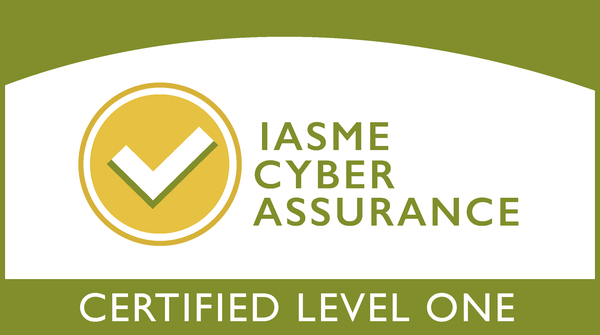The 20 point checklist which follows is the accumulated wisdom of the mistakes made running team based simulations most every week for the last ten years. Please use and improve!
A: BEFORE THE SIMULATION
1. Personal Preparation
Play the whole simulation through by yourself. If possible, next do a test run with a couple of other friendly individuals. Keep a notebook of FAQs as similar questions will probably be asked each time by the participants you run the simulation.
2. Collaboration v Competition
Decide where the simulation event needs to be on the “competition v collaboration” spectrum. Is it totally competitive or totally collaborative or a combination and does it needto change over time? For example, a quite common dynamic is starting competitive and ending collaborative!
3. Team Sizes
If you have more than 6 players in a team, there is a risk of player disengagement. One way to address this is to have a small leadership team on each simulation team and split the team responsibilities out. Make it clear from the start that it is the team leader’s job to get the best out of the team by making sure every individual is fully engaged and employed.
4. Number of Teams
If you have more than 4 teams then competitiveness can take over, whole group discussions become impractical and your time schedule will be under pressure. One way to address this is to conduct all team reviews just within individual teams or groups of teams and not in “plenary”. Also, you may need additional facilitation support!
5. Venue/Rooms
Get the room setup right for the event (usually cabaret style) with all accessories (table numbers, additional large screens, flipcharts, breakout rooms and papers) organised well in advance. Unhelpful room seating (e.g. lecture style) can reduce a team simulation’s effectiveness. Breakout rooms can be very helpful. Beware rooms with no windows as they can become over warm and drain energy. Make sure you build in bio-breaks.
6. Agenda
Have all the timings, sequences and paper distribution plans worked out precisely - leaving nothing vague. Make sure you have an agenda and an onscreen visible timer.
7. Technology Requirements
You need a master computer connected to a projector and a computer for each team. All computers need to be connected to internet. Test that the internet is adequate and does not keep logging or timing people out. Talk to somebody technical who would know BEFORE the event.
8. Technology Setup
Get all the technology connected and working well before the session starts and before the delegates arrive. Avoid having to set anything up during a session. If you must set something up mid-session, then give the delegates a coffee break while you do it. Don't have them watch you struggle!
9. The facilitation Team
Facilitation is a team job – normally 2-persons - you are a facilitation team and you need to agree roles. Obvious role splits are normally “Presenter (Front) v Teams (Back)” and “Technology v Content”. Agree in advance who is the lead facilitator responsible for the success of the event.
10. Team Setup
Make sure the teams have enough time to get themselves organised before they start playing the sim. It is also important that the participants are given time to ask some questions and think through how they will play the sim before they start. It is each team’s responsibility to manage their time - not the facilitators.
B: DURING THE SIMULATION
11. Question Handling
After the initial simulation demonstration don’t answer delegate questions unless you a) need to answer and b) are 100% sure of the answer. Otherwise - it’s part of the simulation that the players work this out for themselves. But make sure you can answer all the basics (e.g. FAQs) or you may lose the participant’s confidence.
12. Helping Teams
If you need to help a team or an individual, ask them a question - never give them the answer. Remember you need to be perceived as fair and treating all teams equally. However, if a team is stuck they won’t be learning do you need to unstick them. Helping a team with technology can be very time consuming – make sure the other facilitator is managing all the other teams if you must provide detailed technology help to a team with a problem.
13. Team Dynamics
Don’t just ignore bad team dynamics or difficult individuals or bossy participants or shyparticipants or people who are disengaged. The best way to address these are by asking teams and participants intelligent questions. For example, “did you all feel you were listened to”, “what do you think about that last decision” ….
14. Team Learning
In Simulations people learn most when they are preparing to play and discussing how they did. These sessions need to be actively facilitated and time-managed by you.
15. Avoid the obvious mistakes
The most common 4 mistakes in a team simulation are:
- not getting off to a good start
- leaving the delegates confused after the sim demo
- losing the confidence of the delegates (e.g. technical glitch or poor demo or badly answered question)
- losing track of the time and falling behind schedule and having to rush or leave bits out and as a result leaving participants feeling frustrated.
16. Expect the unexpected
Don’t panic. WHEN, not IF, something unexpected happens make it part of the simulation that participants must deal with it (e.g. Internet Failure).
17. Learning Domains
Remember the 3 different potential learning aspects of any team sim and what you are trying to achieve in each one - Topic, Team and Individual.
18. End the Event Well
How will the event end? How will you capture delegate feedback? How will the learning be captured or recorded or communicated? How will you ensure that any delegate learning is translated into personal actions, commitments and behaviours? How will you keep the learning alive after the event?
C: AFTER THE SIMULATION
19. Follow-Up
You need to decide in advance what follow-up is needed to support the learning? Quiz? Documents emailed? Feedback? Follow-up group phone meeting.
20. Continuous Improvement
Finally schedule a debrief as soon as possible. Review the delegate feedback and your own thoughts as a facilitation team. If you do this the next time you run the simulation, it will be even better!
FOR MORE INFORMATION
Dashboard Simulations provide industrial-strength Business Simulations which are used by organizational teams for highly engaging learning on key management and leadership topics including Change Management, Business Acumen, High Performing Teams, Project Management and Collaborative Working.



